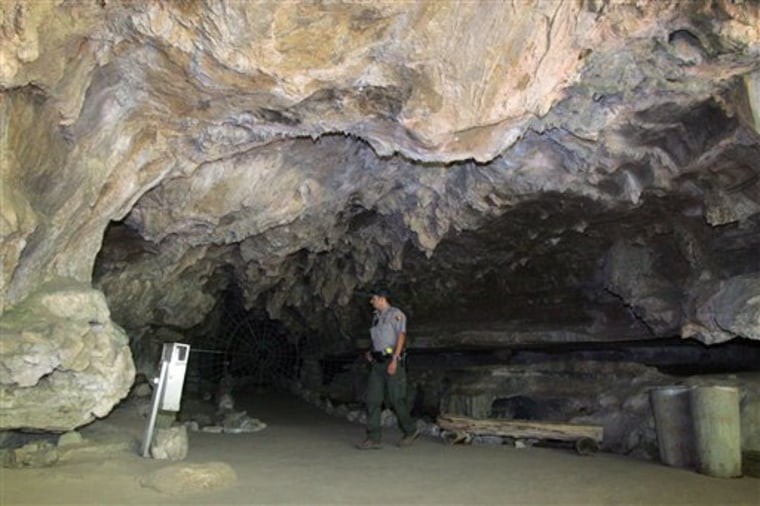A section of this Sierra Nevada national park was closed to visitors Thursday while rangers helicoptered in to destroy a sizable marijuana growing operation just a half-mile away from a crystal-filled cave popular with tourists.
Authorities said the proximity of the pot plants to such a heavily trafficked tourist site was unusual and reflects a newfound boldness among growers, who are now planting marijuana near trails and access roads at an increasing number of parks.
"We've really seen an expansion of the types of sites where people are growing marijuana," said Scott Wanek, chief ranger for the Pacific West region of the National Park Service. "There are some that are very close to trails and much closer to where visitors are."
The National Park Service received an additional $3.3 million this year to combat marijuana growers across the nation, said Jeff Olson, a spokesman for the park service. Yosemite, Sequoia and Kings Canyon, and Redwood national parks in California and North Cascades National Park in Washington are receiving funding. Santa Monica Mountains and Whiskeytown national recreation areas and Point Reyes National Seashore, all in California, are the other recipients.
In Sequoia National Park on Thursday, rangers lowered ropes from a helicopter into Yucca Creek Canyon to investigate five grow sites. There, among the oaks and conifers, they found trash, propane tanks and miles of hose to irrigate the pot plants, law enforcement officials said.
By late afternoon, the helicopter had carried out starter plant trays, camping gear, fertilizer and marijuana plants piled three-feet deep in a black net.
Authorities said trash at the site would be examined for fingerprints or any other clues about who was in charge of the operation.
About three-quarters of the marijuana already had been harvested before the rangers dropped in. The value of the pot plants grown at the site, including what was already harvested, was at least $36 million, authorities said.
"The real tragedy about this is that visitors won't have access to an attraction some have traveled hundreds of miles to see," said Adrienne Freeman, a spokeswoman for the park. "And what's worse, this pot has been growing next to a sensitive area where there are dozens of species at risk that are only in this park."
While the park is best known for its giant sequoia trees, the caves contain hundreds of unique species, at least a couple of dozen of which were discovered over the last few years.
Some visitors to the park Thursday said they were disappointed at the caves' closure.
"I'm fine with the trees, but I really wanted to see the caves," said Beth Fritsch, 41, who traveled to the park from Olney, Md.
It was the first time Sequoia National Park had shut down a public exhibit for a drug bust. Park officials say the Sequoia Natural History Association will lose about $35,000 in revenue from cave ticket sales.
"It's sad to see that this is happening now inside the national parks," Fritsch said.
